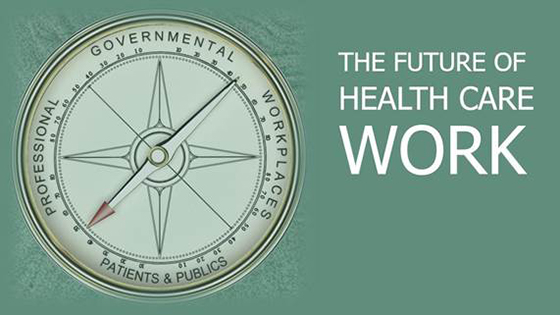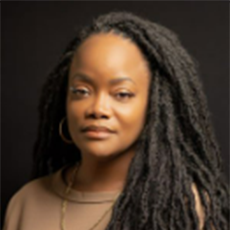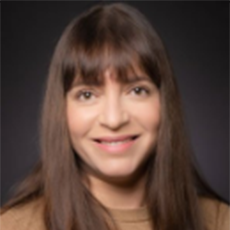
Come explore how education and education science might address some of the most pressing challenges in healthcare workplaces. In an interconnected world of rapidly emerging technologies, shifting expectations of patients and the public, and increasing pressures on healthcare workers, we know the future of healthcare work is changing. With a focus on the connections between change and learning during these transformations, this discussion group will be a vital and interactive community interested in what education science has to offer our current and future workforce. This group is being led by Paula Rowland, Scientist at TIER and the
Wilson Centre and theme lead for
Societies, Systems, and Structures at TIER.
Upcoming Events
Past Journal Club Events


What does educational science have to say about “Learning Health Systems”?
Wednesday, January 31, 2024 | 10:00 - 11:00 am
Reading: Reid RJ, Wodchis, PW, Kuluski, K, Lee-Foon, NK, Lavis, NJ, Rosella, LC, Desveaux, L.
A learning health system adoption engine that integrates research and health systems. Institute for Better Health brief 1: Mississauga, Canada: Institute for Better Health, Trillium Health Partners; 2023.
Accessible here:
https://ossu.ca/resources/learning-health-system/
Come to this journal club to hear what educational scientists have to say about learning health systems. Dr. Nikki Woods and Dr. Maria Mylopoulos will respond and reflect on the Learning Health Systems action framework developed by Trillium's Institute for Better Health (IBH) in collaboration with Ontario SPOR Support Unit (OSSU). This Learning Health System (LHS) Action Framework describes how research and health care operations are linked and enacted in a comprehensive LHS approach to advance population health and health equity. In this session, we will explore what LHS frameworks might mean for educators and how LHS frameworks might be further strengthened through connections to education science and educational scientists. This is sure to be an engaging conversation for all of those interested in connections between education, research, and practice!
Working as a Learning Framework
Tuesday, December 12, 2023
Reading: To be provided upon registration
How might we think about "expansive learning environments" at work? Conversely, how might we think about "restrictive learning environments" at work … and when being restrictive might actually be a good strategy? In this journal club, we will read an overview of the "Working as Learning Framework" (WALF). Developed by researchers in the domain of workplace learning, the WALF draws upon concepts from economics, the sociology of work and sociocultural theories of learning. We will apply this framework to explore how educators might contribute to learning and change in workplaces. This session will be facilitated by Dr Paula Rowland, Wilson Centre Scientist and TIER Theme Lead.
Robots Won't Save Japan: Author Talk
Wednesday, June 21, 2023 | Virtual
Reading: Wright, James.
Robots Won't Save Japan: An Ethnography of Eldercare Automation, Ithaca, NY: Cornell University Press, 2023. doi:
https://doi.org/10.1515/9781501768064
Will robots replace care work? The better question might be: How will robots transform the work of those already giving and receiving care? Join the Future of Work Special Interest Group at The Institute for Education Research (TIER@UHN) to hear from James Wright. We will be exploring his new book:
Robots Won't Save Japan.
No previous robotics experience needed! You can pre-read Dr. Wright's book and/or some of his writing in
MIT Technology Review or his recent podcast on
Tech Won't Save Us.
Industry's Role in Practice-based Education
Wednesday, June 21, 2023 | Virtual
Reading: Grundy Q, Hart D, Perkins-Meingast B, Heesters AM, Miller FA. Outsourcing practice-based education: The role of industry representatives and implications for clinical expertise.
Healthcare Management Forum. 2023;0(0). doi:
10.1177/08404704231173552
In an era of significant human and fiscal constraints, hospitals increasingly rely on industry representatives to fill gaps related to practice-based education. Given their dual sales and support functions, the extent to which education and support functions are, or ought to be, fulfilled by industry representatives is unclear. Join lead author Dr.
Quinn Grundy to discuss the findings of a recent qualitative study conducted at a large, academic medical centre in Ontario, Canada to understand the range of ways that industry representatives are involved in practice-based education and the nature of the downstream effects of industry involvement.
Quinn Grundy, PhD, RN, is Assistant Professor with the
Lawrence S. Bloomberg Faculty of Nursing at the
University of Toronto. Dr. Grundy's research explores the interactions between medically-related industry and public health systems and the impacts on the delivery of health services, health evidence, and consumer health information. Dr. Grundy is the author of
Infiltrating Healthcare: How Marketing Works Underground to Influence Nurses (Johns Hopkins University Press, 2018) which details the first in-depth study of the ways that registered nurses interact with pharmaceutical and medical device company representatives.
Tabletop Simulation
Monday, May 1, 2023 | Virtual
Reading: Brydges, R., Nemoy, L., Ng, S. et al. Getting everyone to the table: exploring every day and every night work to consider 'latent social threats' through interprofessional tabletop simulation.
Adv Simul 6, 39 (2021).
https://doi.org/10.1186/s41077-021-00191-z
Drawing upon insights developed in an earlier institutional ethnography, these authors created a tabletop simulation that allowed participants to examine their own work in ways that no other simulation permits. This methodology has great potential to identify opportunities for change. Come discuss this paper and hear about this innovative simulation approach from the lead author,
Dr. Ryan Brydges.
This session will be facilitated by
Paula Rowland with guest speaker
Ryan Brydges.
Video-Reflexive Ethnography
Wednesday, March 22, 2023 | Virtual
Reading:
Carroll, K., Mesman, J., McLeod, H., Boughey, J., Keeney, G., & Habermann, E. (2021). Seeing what works: identifying and enhancing successful interprofessional collaboration between pathology and surgery.
J Interprof Care, 35(4), 490-502.
https://doi.org/10.1080/13561820.2018.1536041
Dr. Paula Rowland, PhD is a Scientist at The Institute for Education Science, The Wilson Centre, University Health Network and is an Assistant Professor in the Department of Occupational Science and Occupational Therapy, and the Institute of Health Policy Management at the University of Toronto. Paula's research concerns the shifts in professional workplaces. Paula uses theories and tools from the social sciences to better understand what these shifts imply for the future of professional work. Paula is also interested in sociocultural approaches to understanding learning and practice within clinical workplaces. These include dynamics of the clinical learning environment, practice-based learning, workplace learning, knowledge mobilization, and continuing professional development.
